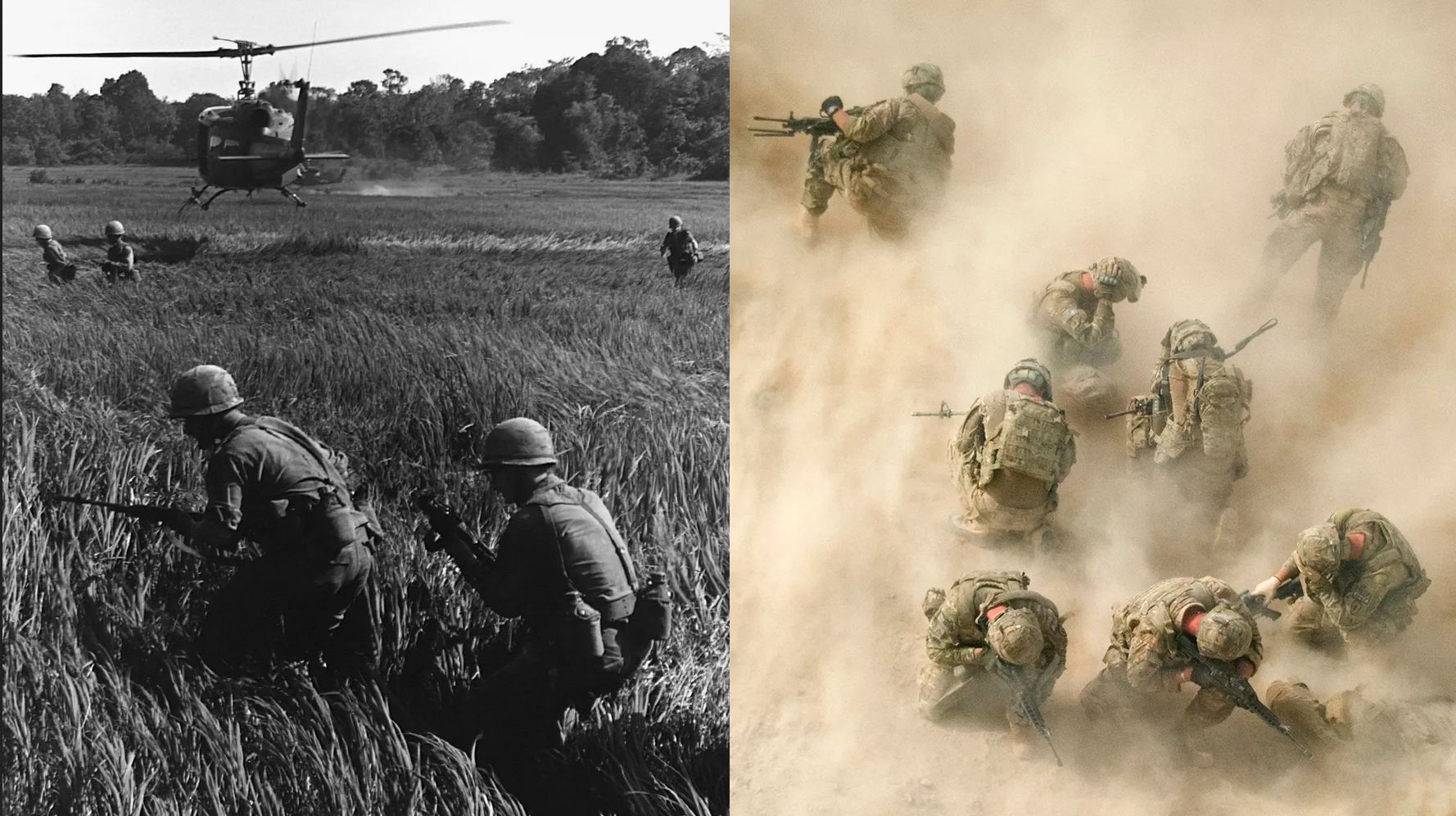

By Ian Ezinga
The United States has been the world’s leading military superpower for almost eighty years. Not quite as impressive as the Romans, but nonetheless, for modern observers, when we think, we might think Red, White, and Blue. These colors don’t run, except on a few occasions, which have had seismic consequences for the US, the region we were engaged in conflict, and the world as a whole.
This is obviously, I hope, not a pro-war column, but I am a wary observer of the consequences wrought upon people both foreign and domestic because of US foreign policy. Getting out of Afghanistan was obviously the right move. In fact, it was never the right move to go to Afghanistan in the first place. Senator Joe Biden certainly was opposed to the invasion, but can we find it in our hearts to forgive his mistake?
I, in answering that question, cannot. The US, as alluded to in the introduction, has abandoned a useless but incalculably costly war before. The lesson should have been learned. There have been plenty of parallels drawn between Vietnam and Afghanistan over the last few weeks, but really comparisons have been made over the entire course of our recently “ended” conflict. To those who are worried about continued conflict in the region on behalf of the United States, rest assured, there will be more.
Having to evacuate Saigon in 1975 certainly did not mean the US abandoned all interests in the region. The United States was keen on maintaining some sort of elevated terrain, if not physically, then in the halls of international diplomacy. Tactfully using their United Nations Security Council veto to deny international aid to the country after the unification of North and South Vietnam, politicians were able to gloat over the terrible conditions found in the war-torn region. Our bombs, napalm, soldiers, and the propped-up government did insurmountable damage yet they saw fit to starve the victorious nation of any chance of stabilizing itself.
Vietnam underwent tremendous struggles in the years following the exit. We were responsible for the conditions and dropped the ball on providing sufficient aid to get them back on their feet. Back in the United States, the 1970s didn’t end up being our golden years. The Watergate scandal and the impending economic crash created a feeling of disillusionment and malaise. While Vietnam is doing better today, there is no question that they would be better off if we admitted defeat early and sought to fulfill our duty of patching the cavernous potholes that we created.
The mention of Vietnam is valuable to making the point that obviously the US should have left Afghanistan ages ago; but now that we have, sort of, we must make a radical commitment to the region that we were unable to make in Vietnam. Pardon my use of “we,” if you are an avowed proverbial expatriate, but it is the duty of this country to support the region we have spent the last twenty years terrorizing. Terror in the name of a democracy which can barely support itself. Terror in the name of greed, sadism, and a long-standing commitment to not sharing.
If the governing officials of the United States have any desire to belong to the pages of history not entirely damned by future generations, then they must shrug off their egos and give what they have almost inexplicably proven to be unable to give: love. A tall order, no doubt. But failing to do so won’t only cause further chaos in Afghanistan and her neighboring countries, but will also set the US on a collision course for repeating history. A malaise is upon us, similar to the one experienced in the 1970s, if we do not cast away the shackles of our past mistakes and create a better future for those we have haunted.
